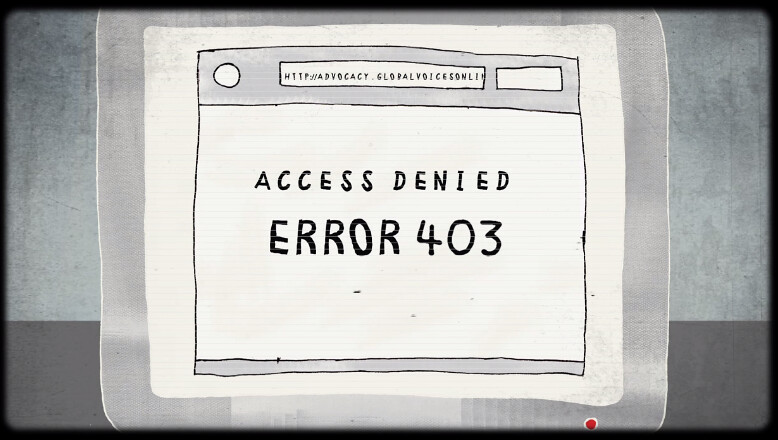RB 188: SOPA on the Ropes(?)
November 21st, 2011

Listen: or download | …also in Ogg
The Stop Online Piracy Act (SOPA) ‚Äî a U.S. House bill that would give the Department of Justice the authority to demand that ISPs block sites accused of hosting pirated content ‚Äî seemed to be doing well. Nearly half of the Senate sponsored similar legislation that survived a committee vote. And people weren’t generally making a big deal about it.
But on the week before Thanksgiving SOPA suddenly hit the front page after a particularly fraught House committee hearing on the bill. Battle lines became clear. Representatives of big content owners like the Motion Picture Association of America (MPAA) partnered with big brands and the US Chamber of Commerce in support of the legislation, saying it would protect millions of jobs. On the other side web entrepreneurs like Google, Twitter, and Facebook sided with Human Rights Watch and the Electronic Frontier Foundation against the bill, saying it would basically give corporations a legal path to censor any site that poses a competitive threat. And now it looks like the bill might have a harder time than legislators originally thought.
But talk to the creators of intellectual property one on one and you’ll see that many don’t have a clear opinion on the bill. The open web has benefitted the work of artists, coders, and researchers alike, allowing them to share their work with new audiences and experiment with new business models for next to nothing. But many creators see that same technology as stealing food from their mouths when their work appears on torrent sites and uncredited on blogs.
We spoke with two people this week to help get our heads straight on SOPA. The graphic artist Jim “Zub” Zubkavich worries about what piracy is doing to his career, but sees SOPA as a little draconian. And Julian Sanchez of the CATO Institute gives some idea of what SOPA will do if implemented, and the chance it might have of passing.
Listen up! Comment on the show! Tweet us!
Reference Section:
Jim “Zub” Zubkavich’s new graphic novel Skullkickers¬Ýand some more links to his work here and here
A summary of the November 16, 2011 House hearing here
americancensorship.org
Creative Commons licensed photo courtesy Flickr user TTC Press
Creative Commons music from DJ Drinks and Neurowaxx
Entry Filed under: audio,radioberkman
13 Comments Add your own
Leave a Comment
Some HTML allowed:
<a href="" title=""> <abbr title=""> <acronym title=""> <b> <blockquote cite=""> <cite> <code> <del datetime=""> <em> <i> <q cite=""> <s> <strike> <strong>




1. Comics A.M. | Occupy Wall&hellip | November 25th, 2011 at 12:56 pm
[…] Creators | Harvard’s Berkman Center for Internet & Society Podcast interviews Skullkickers writer Jim Zubkavich about piracy and the Stop Online Piracy Act. [Berkman Center for Internet & Society Podcast] […]
2. Comics AM | Occupy Miami &hellip | November 25th, 2011 at 3:39 pm
[…] Creators | Harvard‚Äôs Berkman Center for Internet Society Podcast interviews Skullkickers writer Jim Zubkavich about piracy and the Stop Online Piracy Act. [Berkman Center for Internet Society Podcast] […]
3. John | November 28th, 2011 at 12:24 am
Great discussion of both sides of the issue. For those that are interested, there is an interesting discussion of why comic book companies have not filed lawsuits against online comic book pirates called Catwoman or the Kingpin: Potential Reasons Comic Book Publishers Do Not Enforce Their Copyrights Against Comic Book Infringers available on SSRN.
4. Don’t let war on pi&hellip | January 8th, 2012 at 5:15 am
[…] to wholesale piracy be “disappeared”? The answer, in some cases, might be yes ‚Äì provided it’s done with due process and under judicial supervision. But the problem with DNS-blocking is that it’s indiscriminate. The vast majority of the […]
5. Sopa and Pipa: don’&hellip | January 9th, 2012 at 11:30 am
[…] to wholesale piracy be “disappeared”? The answer, in some cases, might be yes ‚Äì provided it’s done with due process and under judicial supervision. But the problem with DNS-blocking is that it’s indiscriminate. The vast majority of the […]
6. Don't let big busine&hellip | January 11th, 2012 at 12:59 am
[…] to wholesale piracy be “disappeared”? The answer, in some cases, might be yes ‚Äì provided it’s done with due process and under judicial supervision. But the problem with DNS-blocking is that it’s indiscriminate. The vast majority of the […]
7. Don’t let war on pi&hellip | January 14th, 2012 at 2:31 am
[…] to wholesale piracy be “disappeared”? The answer, in some cases, might be yes ‚Äì provided it’s done with due process and under judicial supervision. But the problem with DNS-blocking is that it’s indiscriminate. The vast majority of the […]
8. Sopa and Pipa: don’&hellip | January 16th, 2012 at 12:48 am
[…] to wholesale piracy be “disappeared”? The answer, in some cases, might be yes ‚Äì provided it’s done with due process and under judicial supervision. But the problem with DNS-blocking is that it’s indiscriminate. The vast majority of the […]
9. ZUF.ro | February 20th, 2012 at 5:08 am
While in USA is SOPA, in Europe is ACTA. I think is the same stupid law with different name.
10. SopaÂíåPipaÔºöÂà´ËÆ©Â∑®Â§&hellip | March 11th, 2012 at 11:18 am
[…] Áé∞Âú®‰ΩÝÂèØËÉΩ‰ºöËØ¥ÔºöËøôÊú≪ĉπàÈîôÂêóÔºüÈöæÈÅì‰∏ìÈó®ÊâπÂèëÁõóÁâàÁöÑÁΩëÁ´ô‰∏çËØ•‚ÄúÊ∂ৱ‚ÄùÂêóÔºüÂú®Êüê‰∫õÊÉÖÂܵ‰∏ãÔºåÁ≠îÊ°àÂèØËÉΩÊòØËÇØÂÆöÁöÑ‚Äî‚ÄîÂè™Ë¶ÅÂÆÉÂú®Ê≠£ÂΩìÁ®ãÂ∫èÂíåÂè∏Ê≥ïÁõëÁù£‰∏ãËøõË°å„ÄljΩÜDNSÂ∞ÅÈîÅÁöÑÈóÆÈ¢òÊòØÔºå‰∏çÂàÜÈùíÁ∫¢ÁöÇÁôΩ„ÄÇÁªù§ß§öÊï∞Áöщ∏ñÁïåÔºàÂêàÊ≥ïÔºâÁΩëÁ´ôÂíåÊúçÂä°ÊâòÁÆ°‰∫éÂú®Âçï‰∏ÄÂüüÂêçÁöщøùÊ䧉∏ãÊúçÂä°Âô®Ôºå‰∏ĉ∏™‰∏ªÊú∫ÔºàÊâòÁÆ°ÔºâÊúçÂä°ÔºàÊØî¶ÇBlogger.comԺ≺öÂåÖÂê´ÊàêÂçɉ∏ä‰∏áÁöщ∏™‰∫∫ÂçöÂÆ¢ÁΩëÁ´ôÔºåÂÖ∂‰∏≠‰∏ĉ∫õÂèØËÉΩ‰ºö‰øɉΩøÊàñÂú®ËøõË°åÁõóÁâàÔºå‰Ω܉∏ĉ∏™DNSÂ∞ÅÈîÅÂ∞܉ΩøÊ雷∏™Blogger.comÈ¢ÜÂüüÊ∂ৱ„ÄÇ […]
11. @PSFK&hellip | March 22nd, 2012 at 12:45 pm
[…] […]
12. Sopa and Pipa: don’&hellip | May 2nd, 2012 at 8:29 pm
[…] to wholesale piracy be “disappeared”? The answer, in some cases, might be yes ‚Äì provided it’s done with due process and under judicial supervision. But the problem with DNS-blocking is that it’s indiscriminate. The vast majority of the […]
13. Don't let war on pir&hellip | December 12th, 2012 at 10:19 am
[…] to wholesale piracy be “disappeared”? The answer, in some cases, might be yes ‚Äì provided it’s done with due process and under judicial supervision. But the problem with DNS-blocking is that it’s indiscriminate. The vast majority of the […]